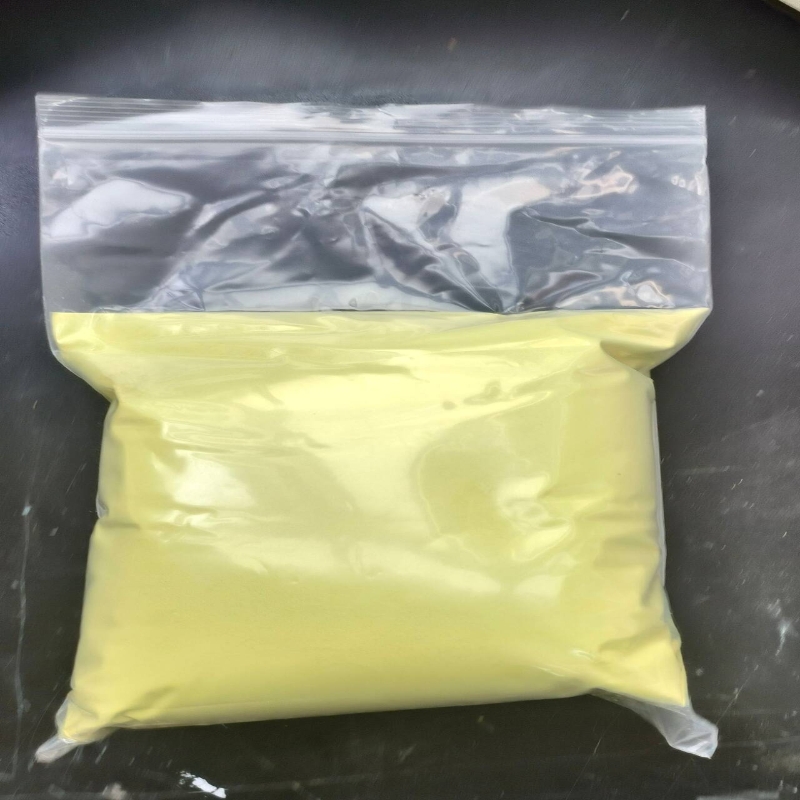The treatment of lung cancer with Sema4D antibody pepinemab and bavencio has a strong effect
-
Last Update: 2020-02-19
-
Source: Internet
-
Author: User
Search more information of high quality chemicals, good prices and reliable suppliers, visit
www.echemi.com
Recently, at the 2020 clinical immunooncology Symposium (asco-sitc) jointly held by ASCO and SITC in Orlando The mid-term analysis of IB / II clinical trial (nct03268057) showed that pepinemab (vx15 / 2503) combined with Merck / Pfizer anti PD-L1 therapy bavencio (avelumab) in the treatment of advanced non-small cell lung cancer (NSCLC) showed antitumor activity and good tolerance The study was reported by Michael Shafique, MD, oncologist, Moffett cancer center In recent years, although immunosuppressive therapy has made great progress, but in the treatment of non-small cell lung cancer (NSCLC), there are still many patients with refractory immunosuppressive therapy or primary drug resistance Arm plate protein 4D (semaphorin 4D, Sema4D, CD100) is widely expressed in many human tumors, and its expression is related to human invasive diseases Sema4D generally regulates the movement and differentiation of certain cells, including those of the immune system and vascular system In preclinical tumor microenvironment, the expression of Sema4D by inflammatory cells and tumor cells regulates the infiltration, spatial distribution and activity of myeloid cells and lymphocytes Sema4D binds to plexin receptor on myeloid cells in tumor microenvironment When the Sema4D protein is blocked, the Sema4D barrier can be eliminated Once the barrier is broken, inflammatory dendritic cells and pro-inflammatory antigen presenting cells will migrate and infiltrate into the tumor In preclinical cancer animal models, blocking Sema4D with antibodies can delay tumor growth and promote long-term tumor rejection Pepinemab is a first-in-class humanized monoclonal antibody, which can target and block Sema4D signal activity, and overcome the drug resistance mechanism of immune rejection and myelosuppression It is important that in preclinical animal models, the combination of Sema4D antibody and immunocheckpoint inhibitors (including anti-CTLA-4, anti-lag3, anti-PD-L1, anti TGF β) can enhance T cell infiltration and activation, and lead to long-term tumor regression Mechanism of pepinemab (click the picture to see the big picture) The purpose of the classical lung study was to evaluate the safety, tolerance and efficacy of pepinemab and bavencio, a Pd - (L) 1 immunocheckpoint inhibitor, in the treatment of advanced non-small cell lung cancer (NSCLC) A total of 62 patients were enrolled in the study, including those who had not previously received immunotherapy (IO initial treatment, ion), and those who had tumor progression (IO failure, IOF) during or after the previous immunotherapy The median age of these patients was 66 years (30-85 years), 55% of them were over 65 years old, 60% of them were male and 92% were white The physical performance of ECoG was 0 (24%) or 1 (76%) Almost all patients (98%) had stage IV disease at the time of screening, except for one case 63% were adenocarcinoma histology, the rest were squamous cell non-small cell lung cancer Dako 73-10 pharmdx detected PD-L1 status in 43% of patients, PD-L1 expression level was 1% - 49%, 37% of patients did not have PD-L1 expression In the high expression group, PD-L1 expression level was 50% - 79% in 18% of the patients and ≥ 80% in 2% of the patients 11 patients had no PD-L1 expression data In the IB part, 12 ion patients were treated with pepinemab and avelumab once every two weeks Among them, 3 received 5 mg / kg of pepinemab, 6 received 10 mg / kg of pepinemab, 3 received 20 mg / kg of pepinemab In phase II, 32 patients with IOF and 18 patients with ion received 10 mg / kg pepinemab and 10 mg / kg avelumab once every two weeks The primary end points of the study were safety, tolerability, and determination of the recommended phase II dose Secondary endpoints included efficacy, immunogenicity, pharmacokinetics, and pharmacodynamics The exploratory end point is to identify active candidate biomarkers The data released at the meeting showed that: (1) of the 21 patients with evaluable ion, 5 had partial remission (PR), 12 had stable condition (SD), and the disease control rate (PR + SD) was 81%; 3 had sustained clinical benefits of more than 1 year, and 7 had sustained clinical benefits of more than 6 months (2) Among 29 patients with evaluable IOF, 2 had partial remission (PR), 15 had stable disease (SD), and the disease control rate (PR + SD) was 59% In particular, 59% (17 / 29) of the 29 patients with evaluable IOF had previously received anti PD - (L) 1 therapy to treat tumor progression, but the combination of pepinemab and avelumab had clinical benefits and terminated or reversed tumor progression Three patients with IO were stable after combined treatment Two patients failed to receive keytruda (Coretta, pabolizumab) treatment, but after turning to the combination treatment, the disease was partially relieved At the last scan, the tumor volume was reduced by 66% and 52% The duration of remission was ≥ 1 year in 1 patient and ≥ 6 months in 6 patients According to the PD-L1 status test report (n = 44 / 50) obtained by the end of January 10, 2020, a total of 29 PR + Sr patients were analyzed for PD-L1 There were 23 cases (79%) with negative or low level of PD-L1 expression (0-49%), of which 10 cases were negative (< 1%) Exploratory analysis of biopsies before and during treatment showed that CD8 + T cell density increased in most tumors treated with pepinemab + avelumab The increase of CD8 + T cell density in tumor seems to correspond to the therapeutic response In 10 / 11 of the biopsies analyzed from PR or SD patients, tumor disappearance or significant reduction was observed Interestingly, no tumor was detected in the biopsies analyzed from 4 / 5 PR patients and 3 / 6 SD patients In the study, no significant safety signals were found in the combination of drugs So far, in all dose levels of patients in the study, the combination of drugs was well tolerated In the upgraded cohort, one patient who received 10 mg / kg pepinemab and 10 mg / kg avelumab had dose limited toxicity, grade 3 pulmonary embolism The adverse event (AE) was resolved and did not recur in the patient or any other patients For all patients in the study, the most common treatment-related AE was fatigue, fever, or chills of level 1 or 2 There were 2 cases of immune-related myositis and immune-related AE of immune-mediated pneumonia in the extended cohort By January 14, 2020, the researchers had not reported any deaths related to combination drugs, nor expressed concern about the overall immunogenicity of the combination drugs These results confirmed that the Sema4D antibody pepinemab reversed the immune balance (increased T cell infiltration and T cell activity, decreased myeloid cells and immunosuppression) in tumor microenvironment (TME), and overcame immune rejection and myeloid inhibition The combination of pepinemab and avelumab has good tolerance and preliminary synergistic antitumor activity Exploratory analysis showed that the increase of CD8 + T cell level was related to tumor remission.
This article is an English version of an article which is originally in the Chinese language on echemi.com and is provided for information purposes only.
This website makes no representation or warranty of any kind, either expressed or implied, as to the accuracy, completeness ownership or reliability of
the article or any translations thereof. If you have any concerns or complaints relating to the article, please send an email, providing a detailed
description of the concern or complaint, to
service@echemi.com. A staff member will contact you within 5 working days. Once verified, infringing content
will be removed immediately.




![2-(Hydroxymethyl)benzo[b]thiophene](https://file.echemi.com/fileManage/upload/cas/593/e79a972f-b55d-4dc1-9113-841c417e0a89.png)


